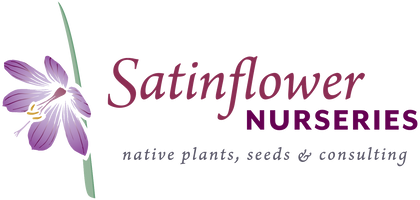Reconcili-ACTION: How to be a Proactive Ally Everyday

By Dominique James
Good day everyone, ÍY SCAĆEL HÁLE,
When we move from a passive to active allyship in support of Indigenous communities, we engage in Reconcili-Action. Reconcili-Action is a necessary step towards healing and decolonization from the immense damage caused by colonization on the territories of Vancouver Island. Such actions are critical to mitigating the effects of the historical injustices that continue to impact Indigenous Peoples today.
Satinflower Nurseries is committed to engaging in active allyship and shares this resource to encourage white-settlers or settlers/visitors allies to do the same.
“The road we travel is equal in importance to the destination we seek. There are no shortcuts. When it comes to truth and reconciliation, we are all forced to go the distance.”
- Justice Murray Sinclair, Chair of the Truth and Reconciliation Commission (TRC)
At Satinflower Nurseries, we engage with Indigenous communities in support of cultural revitalization projects and have committed to the process of reconciliation. We are deeply committed to uplifting and honoring the leadership of Indigenous communities by fostering strong relationships and empowering communities through meaningful, impactful actions. These actions include caring for and teaching from the land, which is foundational to the well-being of Indigenous Peoples whom have lived in balance and interconnection with this area since time immemorial. All the necessities of life were provided by the land including food and medicines. Every day we acknowledge these deep connections and advocacy for the lands, waters and forests. We are committed to uplifting these teachings by advocating for sustainable practices, sharing knowledge, and creating spaces for learning about the environment. Guided by this understanding, we aim to foster strong, meaningful relationships and partnerships with Indigenous Peoples and take actionable steps to uplift communities. This includes developing new projects, programs and workshops, supporting each other and working towards better harmony with Indigenous cultures, beliefs and ways of being.
What are some of your hopes and dreams as you begin your journey of Reconcili-Action? Some common questions that folks may wonder are:
- How can I strengthen my relationships with myself and Indigenous People?
- How can I learn from our differences?
- How can I contribute to the health of my community?
- What do I need to consider about myself, my understanding and others before I engage in building relationships?
With these questions in mind, consider these ways you can actively engage in Reconcile-Action:
- Listen to the Indigenous People you have come to support.
- Learn cultural protocols of the Nations whose territories you are living and working on.
- Always respect and acknowledge the Indigenous People on whose territories you reside. Self locate; know you are a visitor and respect the territories you are visiting as you would someone’s home.
- Respect and learn the history and traditional placenames of the lands and waters you are engaging with.
- Learn through the stories and protocols of the Indigenous Nations to whom those territories belong.
- Embody your allyship in all aspects of your life (not just temporary or selective).
- Build and nurture good relationships with those you wish to support.
- Be humble, don’t make it about you, and don’t impose.
- Be present and abundant. Offer the skills that you have to the movement you want to support.
- Make yourself useful and make space, create openings for Indigenous resurgence to emerge through dismantling colonial systems, institutions, relationships and mindsets in all the space you inhabit and engage with.
- Take an intersectional approach and remember that while we share some of our struggles there are others that we do not.
- Strive to leave a place better than you found it.
“Education is what got us here and Education is what will get us out.”
- Justice Murray Sinclair
As you move forward, ground this work in the land and heal your relationships to the First Peoples of these lands. Build your community and make connections you can reach out to as you process and digest this learning. This work is centred around relationships. Relationships are built on trust and respect, a life-long process of working to advance inclusion through intentional, positive, and conscious actions within one's sphere of influence. There are a number of ways to do this in addition to those listed above that begin with educating yourself, owning your privilege, being receptive to feedback and supporting movements in pursuit of ending oppression and creating equality. With these teachings in mind, you can stand up as allies, not only creating a sense of safety and belonging for individuals from diverse backgrounds but also paving the way for the next generation. Challenge yourself to control the way you respond to what's happening; that’s where your power is.
Dominique James has been part of Satinflower Nurseries since the winter of 2020. Dominque is a member of the W̱SÁNEĆ Nation, currently residing on the W̱JOȽEȽP Nation of her maternal family home of the Sampson family and also tied to the BOḰEĆEN Nation on her paternal side. Dominque brings many skills to the nursery, from plant propagation to cultural knowledge and plant uses, and is always a friendly face greeting visitors. Dominque is a passionate SENĆOŦEN speaker, having worked at the LÁU,WEL,ṈEW̱ Tribal School in the SENĆOŦEN immersion program, then receiving education through UVic for Language Revitalization.

- Satinflower Nurseries






